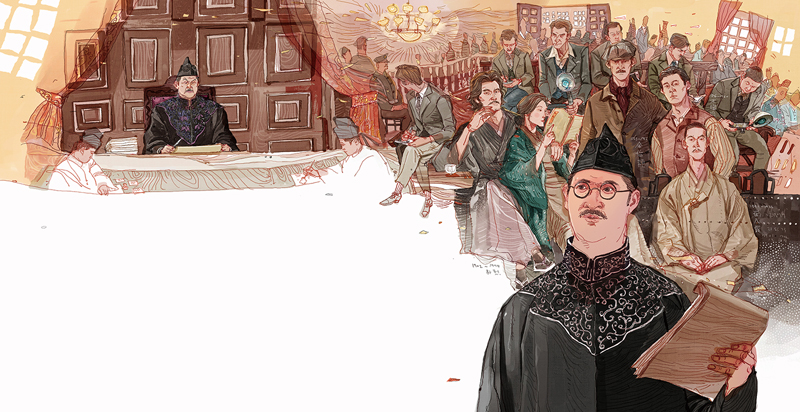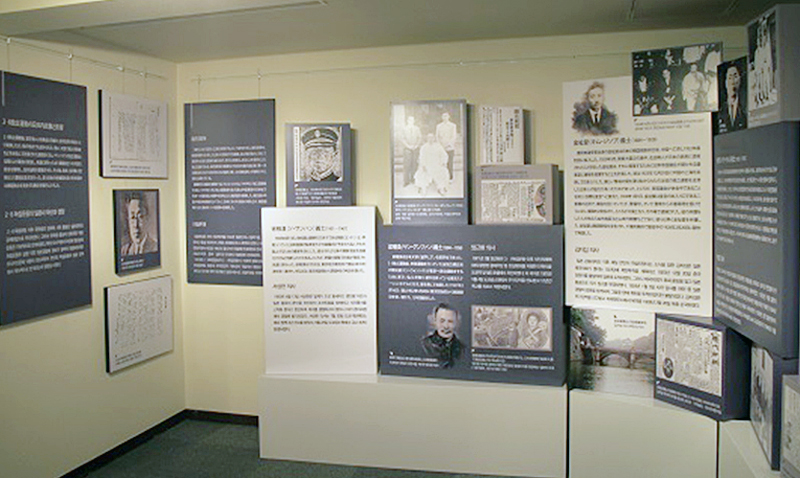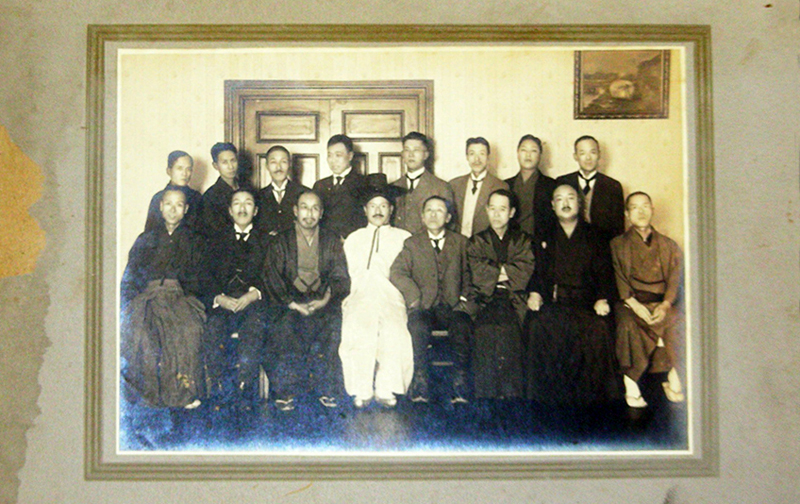
Photos = The Independence Hall of Korea
Illustration = Manus Eugune
"Together with the people to live, for the people who must die (生きべくんば民衆と共に、死すべくんば民衆の為に)."
This phrase is inscribed on the tombstone of Tatsuji Fuse (布施辰治, 1880-1953), the first Japanese recognized by the Korean government as a person of merit in the fight for Korean independence. He was posthumously honored in 2004 with the Aejokjang (Independence Medal) of the Order of Merit for National Foundation. His tombstone, called Hyeonchangbi, is located at Akebono Minimi Park in his Japanese hometown of Ishinomaki, Miyagi Prefecture, and symbolizes his lifelong devotion to the "people."
In his early days, Fuse studied Gyeomae Sasang (兼愛思想), or the philosophy of universal love preached by the ancient Chinese sage Mozi (墨子) based on the teaching "Love for all of mankind comes from heaven and is the legitimate, moral duty given to the people." As he grew into a young man, Fuse extensively read the works of Russian novelist Leo Tolstoy.

An exhibition in 2016 in Japan introduces Tatsuji Fuse along with Korea’s independence activists.
From prosecutor to human rights lawyer
Holding Mozi's philosophy and Tolstoy's literature dear to his heart, Fuse graduated from the School of Law at Meiji University in 1902. In the same year, he was appointed a public prosecutor at the Utsunomiya District Court in starting a path that guaranteed success in Japanese society at the time. Yet one event caused him to head toward another direction.
Fuse was tasked with indicting a woman who had tried to commit suicide with her child, but ended up surviving while her offspring died. This incident made him question the adequacy of the social system and enforcement of laws.
Thinking that his own conscience must guide his life, he quit his job as a prosecutor after just six months to become a human rights lawyer.
Opening a law firm in Tokyo, Fuse began making a name for himself and enjoyed a decade of recognition as a sought-after lawyer. In 1911, a year after Korea was forced by Japan to sign an annexation treaty, he published the paper "Paying My Respects to Joseon's (Korea's) Independence Movement" that defined the Japanese annexation of the Korean Peninsula as "an invasion" and discussed Joseon's "righteous armies" formed by the people. His action immediately led to a criminal investigation into him and his name being put on a blacklist.
Despite facing heavy police pressure, Fuse continued to defend society's weak and the people of Joseon and Taiwan, two countries that Japan had colonized. He eventually defended Choi Pal-yong (1881-1922) and Song Gye-baek (1894-1920), two leading figures of the Feb. 8 Independence Declaration in 1919 in Tokyo, a movement led by Korean students abroad. Fuse insisted on the innocence of both activists despite facing a treason charge from Japanese prosecutors.

This photo shows Tatsuji Fuse wearing a Hanbok and a gat (hat).
'Following his conscience'
In 1920, Fuse, then in his 40s, announced that he would leave the legal profession to help society, declaring his "Confession of Self-Revolution."
His confession stated, "A person must listen to his or her own genuine voice that explains the life that he or she should live (人間誰でもどのような生き方をするのがよいかについて、正直な自分の声を聞かなければならない。), this is the voice of conscience, and thus, I solemnly declare a 'self-revolution' (これは良心の声である。私はその声に従って厳粛に『自己革命』を宣言する。)."
In 1923, when Kim Si-hyeon and other members of the pro-Korean independence group Euiyeoldan (Heroic Corps) were arrested for trying to bomb the headquarters of the Japanese Government-General in Korea, Fuse took up their case to ensure a fair verdict. In the same year, he criticized Japan's martial law command and police for massacring thousands of ethnic Koreans who were blamed for the Great Kantõ Earthquake. He also sent a letter to the Korean dailies Dong-A Ilbo and Chosun Ilbo to apologize as a Japanese.
hanjeon@korea.kr